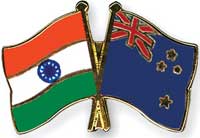India Brazil Relations

India Brazil Historical Relations : Pedro Álvares Cabral, a Portuguese explorer landed on the East coast of Brazil in 1500, two years after Vasco de Gama had landed in India. Between the 16th and 18th centuries, Brazil and Goa, both outposts of the Portuguese imperialist outreach, had bilateral exchanges, which found reflection in the flora and fauna, food and dress as well as folk traditions of Brazil. However, our different colonial histories limited our contacts. India opened its diplomatic mission in Rio de Janeiro in 1948, which later moved to Brasilia in 1971. The Indian Consulate General in Sao Paulo, the industrial and commercial hub of Brazil, was opened in 1996. India Brazil Political Relations India -Brazil bilateral relations are in a state of clearly discernible upswing. Although the two countries are divided by geography and distance, they share common democratic values and developmental aspirations. Both are large developing countries, each an important player
